Logical Reasoning Geometry Worksheets for Ages 5-7
6 filtered results
-
From - To
Discover our engaging Logical Reasoning Geometry Worksheets designed specifically for kids aged 5-7. These worksheets help young learners enhance their critical thinking skills through fun geometric challenges. Children will have the opportunity to recognize shapes, identify patterns, and solve problems while building their foundation in geometry. Each worksheet offers age-appropriate activities that stimulate logical reasoning and foster a deep understanding of spatial relationships. With colorful illustrations and interactive exercises, these resources not only make learning enjoyable but also help in developing essential early math skills. Perfect for classroom use or at-home practice, our worksheets are a valuable tool for every budding mathematician!
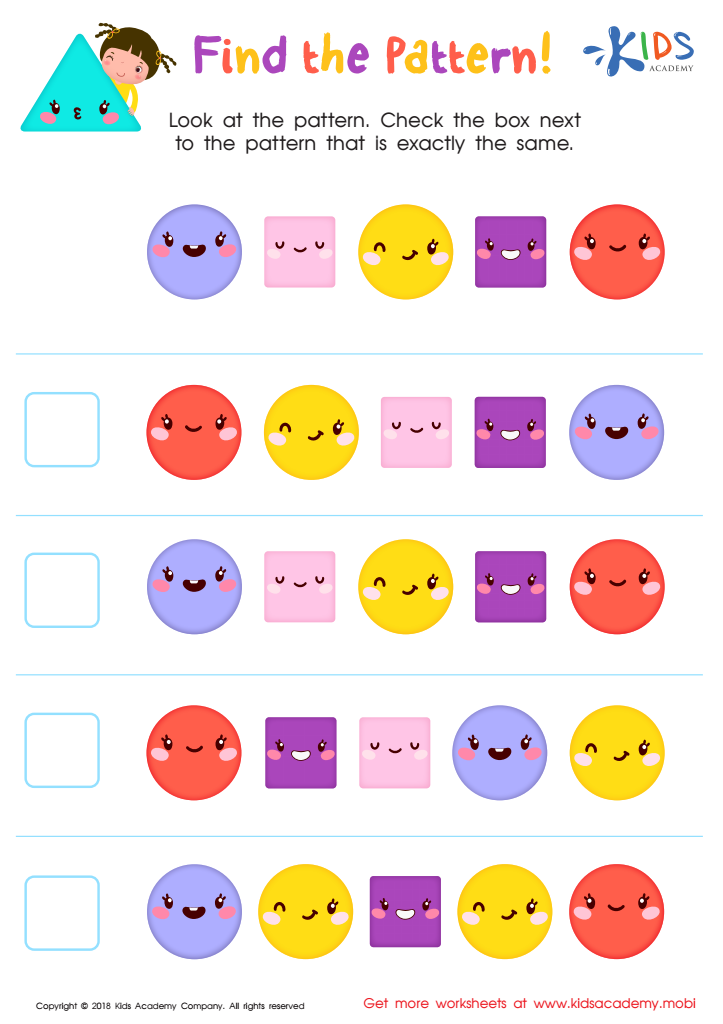

Find the Pattern Worksheet
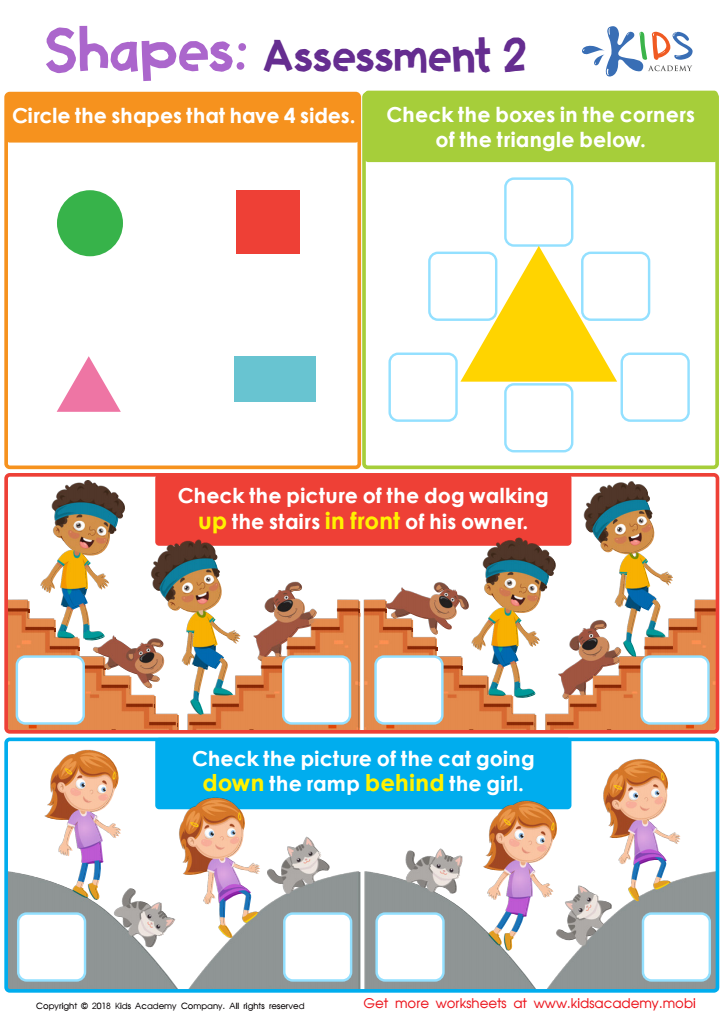

Shapes: Assessment 2 Worksheet
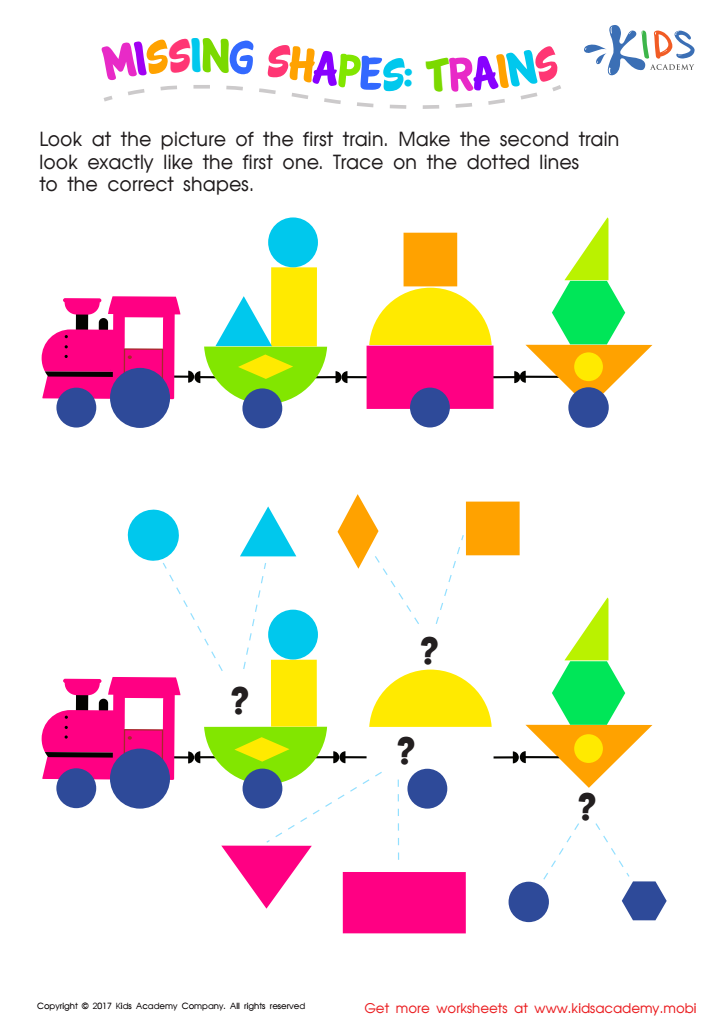

Missing Shapes: Trains Worksheet
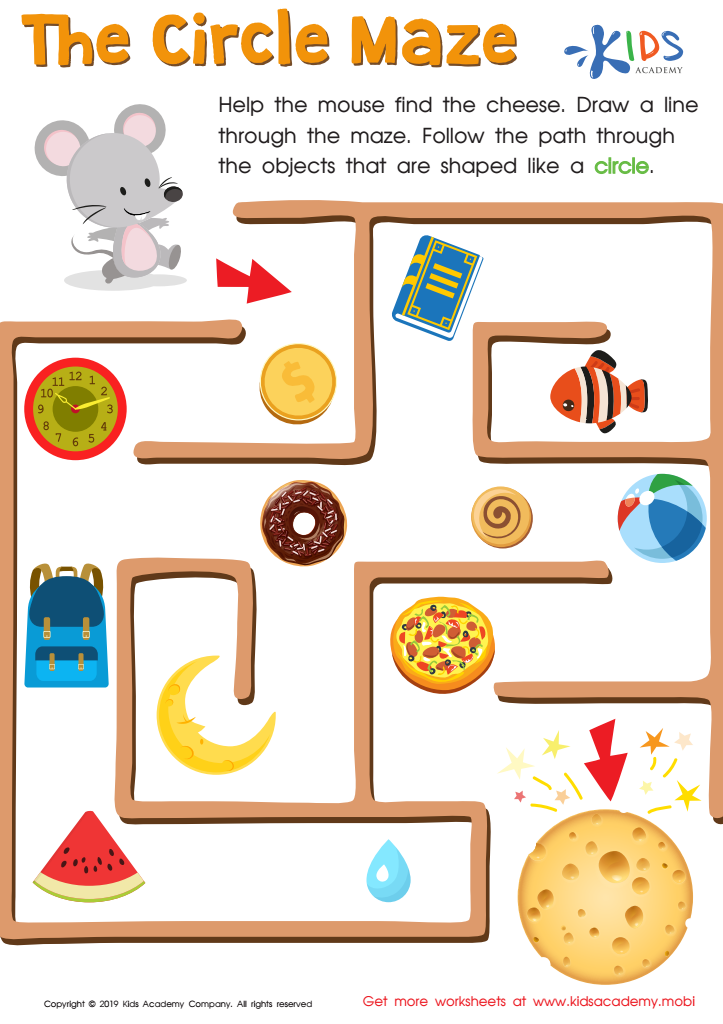

The Circle Maze Worksheet
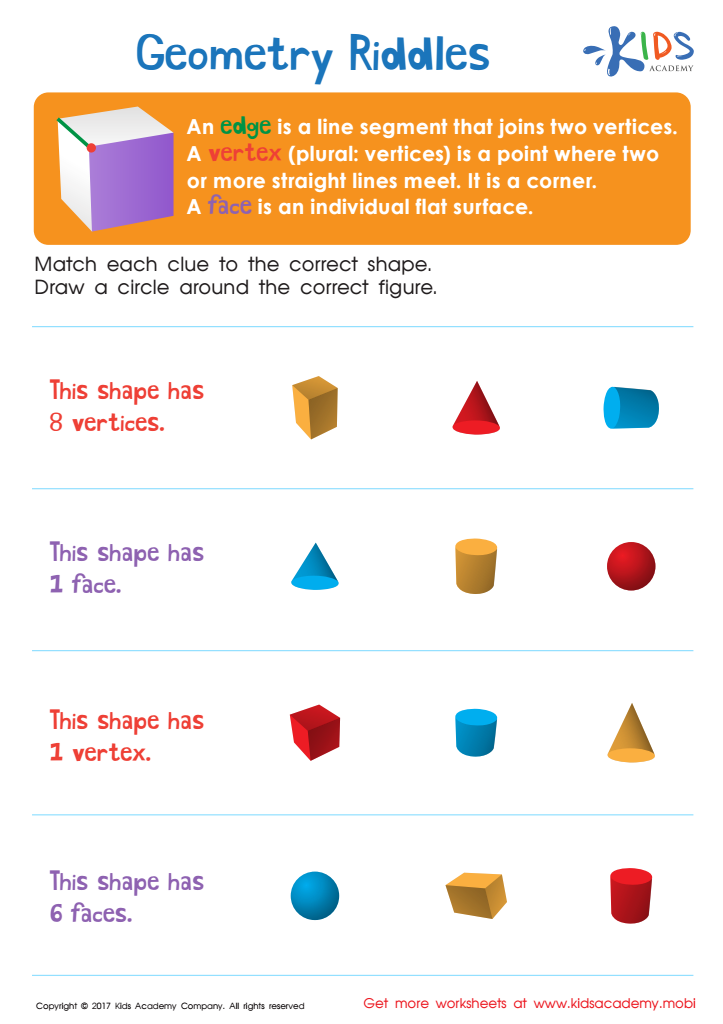

Geometry Riddles Printable
Logical reasoning and geometry play a pivotal role in the cognitive development of children aged 5-7. During this critical stage, children begin to develop the foundational skills necessary for problem-solving and critical thinking. Engaging with logical reasoning activities fosters their ability to analyze information, identify patterns, and make connections, laying the groundwork for more complex reasoning skills later on.
In geometry, children learn about shapes, spatial relationships, and measurement. This not only enhances their mathematical skills but also aids in their understanding of the world around them. When children recognize shapes and their properties, they become more adept at categorizing objects, which parallels skills they will use in reading, writing, and everyday decision-making.
Moreover, incorporating logical reasoning and geometry into early education encourages collaboration, as children often work together on puzzles or shape-building activities. This interaction promotes communication skills and teamwork.
By emphasizing these areas, parents and teachers equip children with essential skills that enhance their academic performance and everyday life. Engaging with logical reasoning and geometry fosters not just mathematical intelligence but also a child's overall reasoning abilities, helping them navigate challenges both in and out of the classroom.
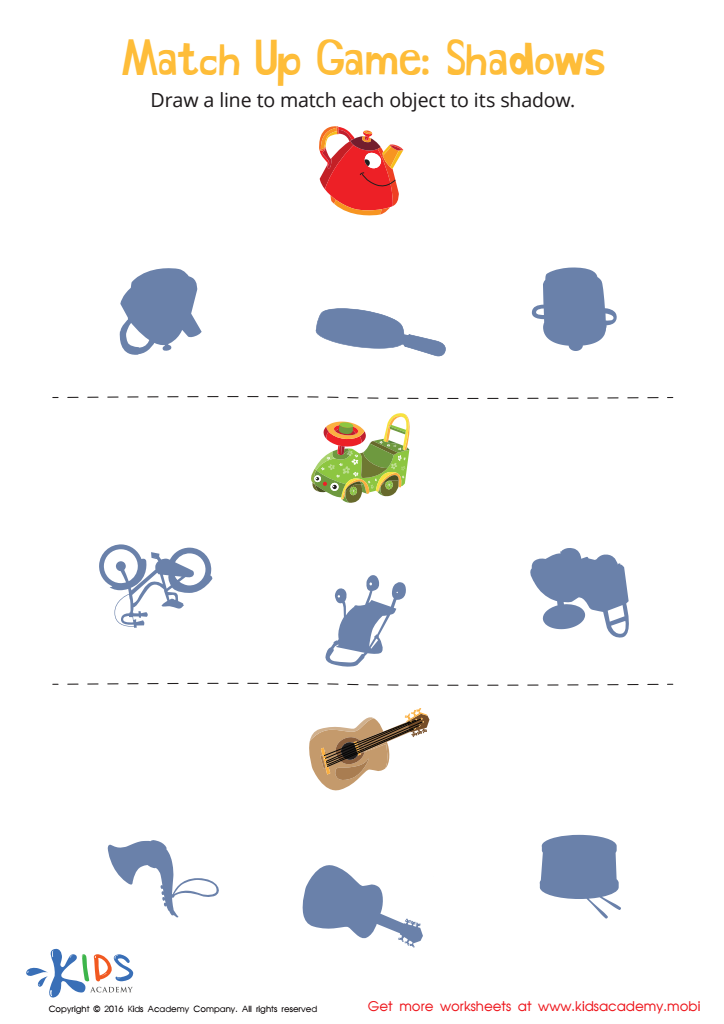
 Assign to My Students
Assign to My Students
















